Celebrating 10 Years of Voo Store
- Words
- Cassidy George
For Voo Store’s 10th birthday Yasin shares the story behind Voo with an exclusive interview featuring ten of his favourite belongings.
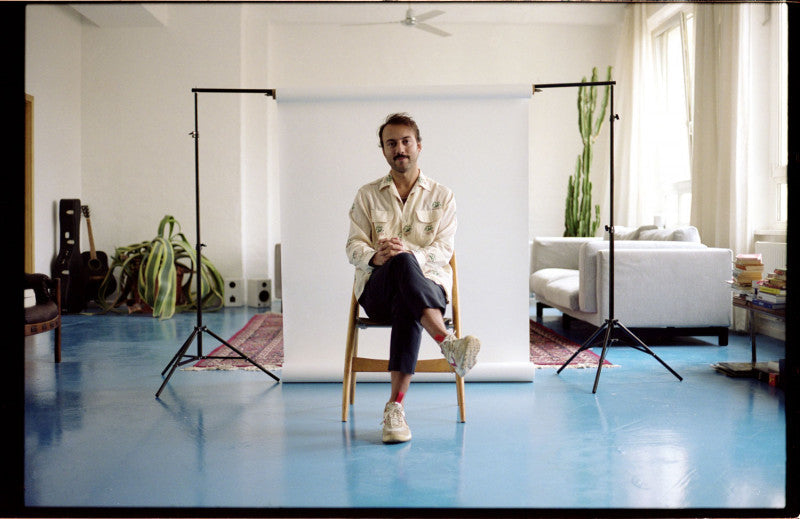

Though he’s responsible for creating the most cult fashion destination in Berlin, Voo Store founder Yasin Müjdeci has always preferred to stay out of the spotlight. “I’ve spent my life creating things,” he explains, “and it’s always been important to me that they are the focus.” But to commemorate the 10 year anniversary of Voo Store, the young entrepreneur has emerged from his typical BTS role to reflect on the pivotal contribution he and Voo have made to Berlin’s fashion landscape.
Born and raised in Ankara, Turkey, Müjdeci first came to Berlin when he was 21, to study political science. He expected his stint in the city to be a pitstop before ultimately settling in Paris, but, as many expat-stories go, he fell in love with Berlin. “When I used to think of Germany, I thought of lederhosen and Oktoberfest. I had no idea how different Berlin was from the rest of the country.”
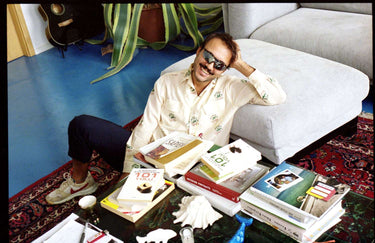
Landing in 2003, Müjdeci arrived in Berlin during an exciting period of transition—the same year mayor Klaus Wowereit (who famously described Berlin as “poor, but sexy”) took office. Known for his progressive attitude and emphatic support for arts and culture, Wowereit helped shift Berlin’s reputation from a poor, war torn city to a creative utopia. Müjdeci found himself surrounded by a young, international community of artists (the era of Ricardo Villaobos and Kunsthaus Tacheles) searching for places to connect with one another.
Inspired by this flourishing scene, he opened Luzia Bar on Oranienstrasse, and it quickly became one of the most happening watering holes in the area, known for its well dressed crowd and clublike atmosphere. Luzia’s success inspired Müjdeci to expand his ambitions; 3 years later, he took over a lease for a 300 square meter space just 2 blocks away from his bar.
There, he opened a multipurpose space that he felt was desperately needed: a place for artists to network, exhibit, buy and sell.
Daring to push the boundaries of the typical retail experience, Voo Store served as a third-wave coffee shop, gallery and event space. It was a pioneer of the concept store model, long before the craze swept the industry. Drawing attention for its inventive selection of mens’ and womenswear, home goods, art objects, and books in a gallery like space, Voo quickly became one of the most influential retail destinations in the city. And as the rest of the world became increasingly fascinated with Berlin, Voo became a global attraction. Though it’s now a household name, Müjdeci has preserved its original, DIY spirit. “We are still an independent store,” Müjdeci says. “Our freedom will always be the most important thing.”
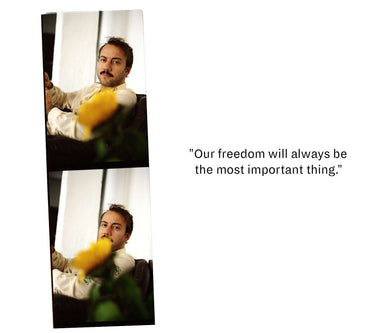
Over the course of a decade, Müjdeci has not only built a celebrated concept store, but a cultural institution with an influential role in the city’s contemporary landscape. True to Voo style, Müjdeci chose to tell the story of Voo through a collection of objects. Below are 10 items of significance, which commemorate his journey.
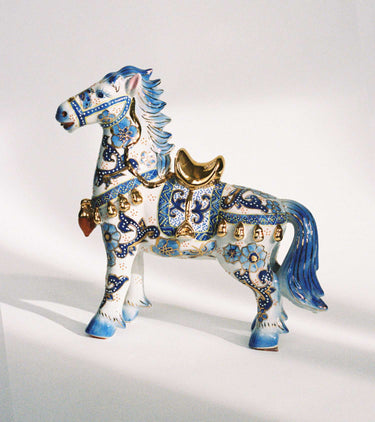
Porcelain horse
“I didn’t buy this, I found it. Or maybe someone sent it to me,” Müjdeci says. Discovered on Admiralsbrücke in the early hours of the morning (after a long evening at Luzia), Müjdeci stopped in his tracks when he saw a porcelain horse beaming in the sun. Sure its owner would return, he waited a half hour before claiming this treasure and bringing it home. “It was really one of those magical Berlin moments. I felt it was a sign.”
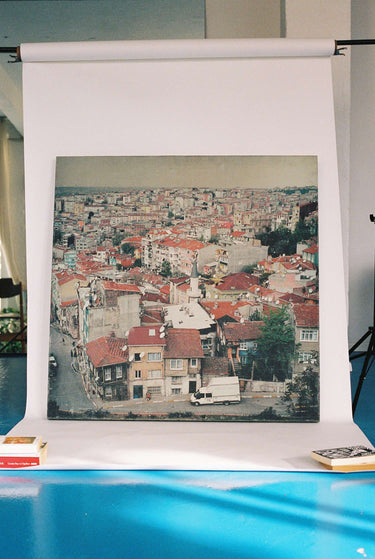
Fish in plexiglass
Voo is synonymous with good, clean design, which is an extension of Müjdeci’s own taste. He draws much of his aesthetic inspiration from Japan, where he purchased this small fish preserved in plexiglass. This small object is, to him, a perfect example of how sometimes the simplest things can make the most significant visual impact. “This isn’t typical Japanese design, but it has taught me so much about Japanese design. I look at it all the time.”
Zeki Müren LP
“Unfortunately he’s dead now, but Zeki Müren was one of the biggest artists in Turkey in the ‘50s, ‘60s and ‘70s. And though Muren never explicitly says it, he was transgender,” Müjdeci says. The beloved singer Müren, who was able to unite Turkey with the power of great music (in spite of what you would assume was a controversial gender expression), has long fascinated Müjdeci. “This LP reminds me of old Turkey, which was a far more open minded place. It’s incredibly conservative now.”
“Everytime I travel, I always go somewhere that no one has written about. Müjdeci says. “That’s how you find the most interesting things.” While wandering through a poor but vibrant neighborhood in Cairo, Müjdeci found an illegal bottle of Arak with a beautiful design that he couldn’t live without. He was sold it, tentatively, by an older man, who warned him not to drink it. When asked if he has ever opened the bottle, Müjdeci says, “Never! If I do, something bad might happen.”
Dictionary
During the first 3 years he spent in Berlin, Müjdeci carried his German dictionary in his back pocket, everywhere he went. “Imagine! We didn’t have the internet or cell phones back then. I needed it all the time,” he says. A product of his late teens, the overused book has been rebound with stickers from early ‘00s bands Limp Bizkit and System of a Down. “It was my first and last German dictionary.”
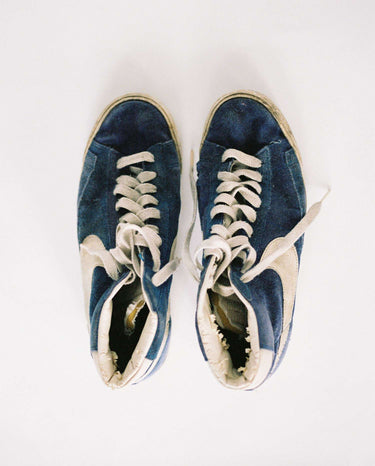
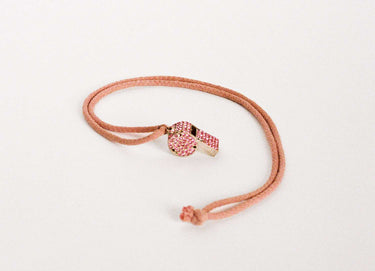
Books
This stack of books includes Müjdeci’s favorite works by his favorite authors: Orphan Pamuk, Gabriel García Márquez and Charles Bukowski. “I have read every book that these novelists have written,” he says. His reverence for beautiful books has become a part of Voo’s DNA, which always stocks an exciting collection of printed matter.
Sneakers
“I opened Voo wearing these Nike sneakers. I think they still have 10 year old dust on them,” Müjdeci says. Voo was a labor of love for Müjdeci, who has always been very hands on with the store. These sneakers remind him of all of the hard work that went into repurposing the 300 square meter space, and his commitment to perfecting every detail. “These shoes are ripped up and dirty and falling apart, but I’ll never get rid of them.”
Whistle
This swarovski crystal encrusted whistle encapsulates the years Müjdeci spent enjoying Berlin’s incomparable nightlife the most. “It reminds me of the Bar 25 era: that chapter when we were always at parties and always listening to the best electronic music.” The whistle’s backstory is especially charming because it remains an unsolved mystery. “I have no idea where or when I got it. I just woke up wearing it one day,” he laughs.
Lion prize
At the 71st edition of the Venice Film Festival, Müjdeci and his brother Kaan won the Special Jury Prize, a major accomplishment for his filmmaking debut as a producer, and his brother’s as a director. They were personally congratulated by the Turkish Minister of Culture, Omer Celik, who later tweeted “our cinema is entrusted upon safe hands, youngsters.”
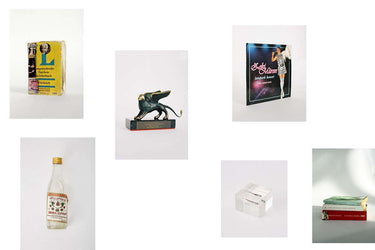
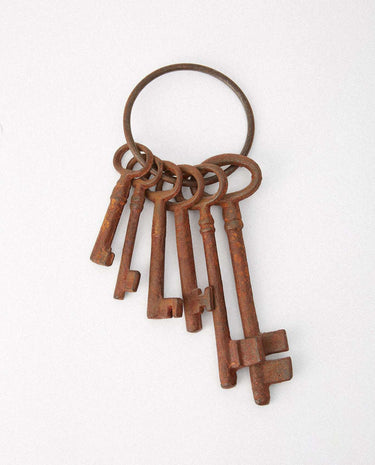
Keys
Though Müjdeci found this antique set at a secondhand shop, they symbolise the keys to Voo Store’s success. “Keys are always something positive. They open new places, start new chapters, and give you answers.” Intent on capitalising on these keys’ good omen, Müjdeci placed them in the store before he opened 10 years ago. He hasn’t moved them since.
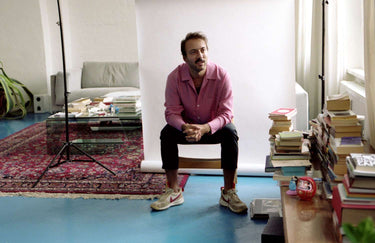
Words: Cassidy George